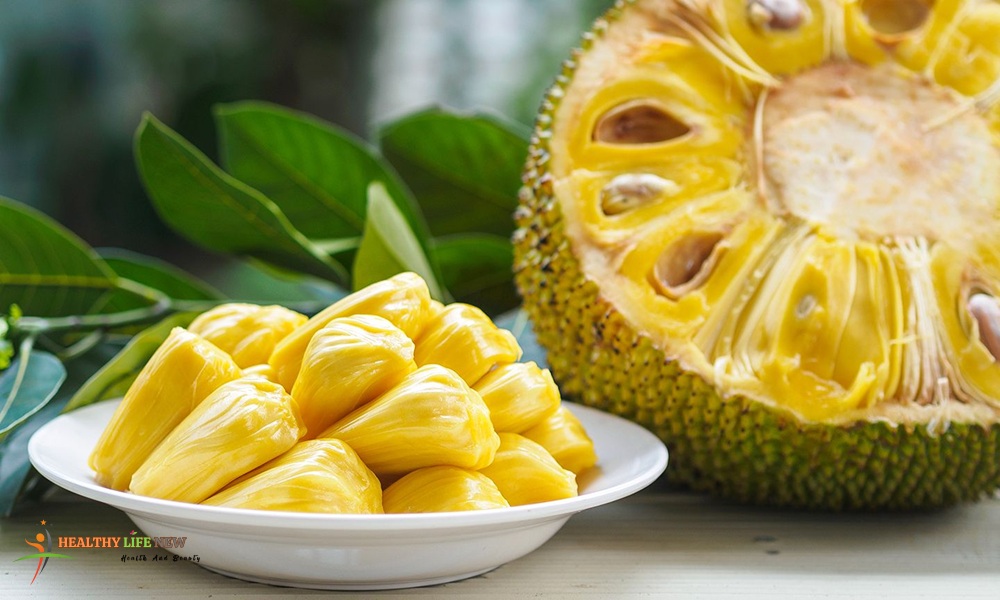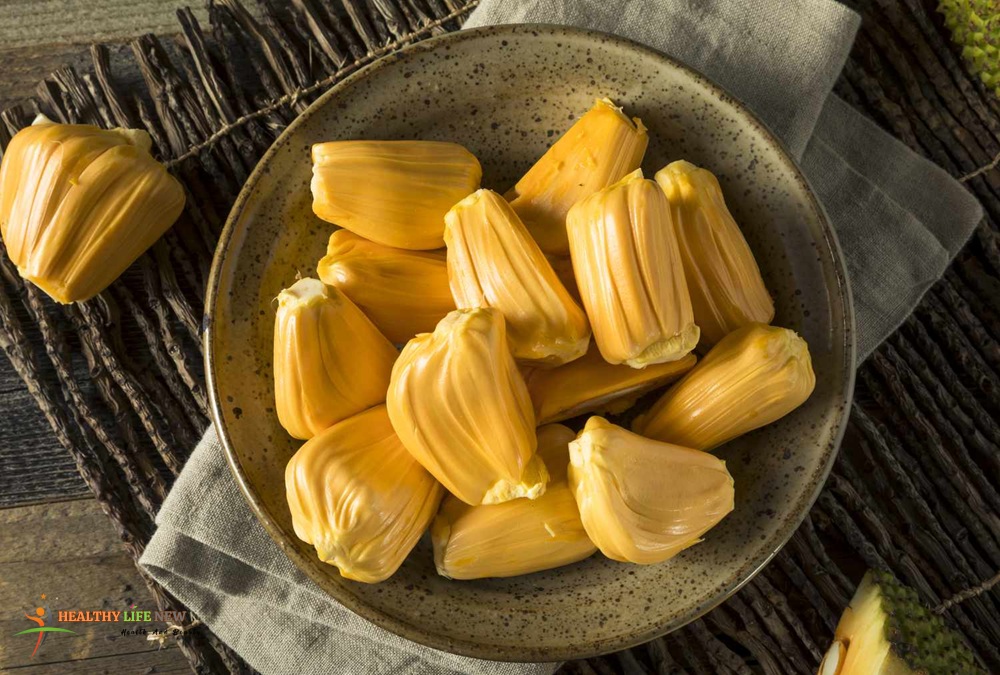Jackfruit, often referred to as the “king of tropical fruits,” is gaining popularity worldwide due to its versatility, unique flavor, and impressive nutritional profile. Whether you’re a health enthusiast, a vegan looking for meat substitutes, or simply curious about exotic fruits, understanding jackfruit nutritional information is key to incorporating this superfood into your diet. In this article, we’ll dive deep into the nutritional benefits, health advantages, and practical uses of jackfruit, ensuring you have all the information you need to make informed dietary choices.
What Is Jackfruit?
Jackfruit (Artocarpus heterophyllus) is a tropical fruit native to South and Southeast Asia, including India, Thailand, and Malaysia. It is the largest tree-borne fruit in the world, with some specimens weighing up to 80 pounds. The fruit has a spiky green exterior and a fleshy, yellow interior that can be eaten ripe or unripe. Ripe jackfruit is sweet and often consumed as a fruit, while unripe jackfruit is starchy and commonly used as a meat substitute in vegan and vegetarian dishes due to its texture.
Beyond its culinary versatility, jackfruit is packed with essential nutrients that make it a valuable addition to a balanced diet. Let’s explore the jackfruit nutritional information in detail.
Jackfruit Nutritional Information
The nutritional content of jackfruit varies slightly depending on whether it is ripe or unripe, fresh or canned. Below is a detailed breakdown of the nutrients found in a 1-cup (165-gram) serving of fresh, ripe jackfruit, based on data from the USDA:
- Calories: 157 kcal
- Carbohydrates: 38.4 grams
- Sugars: 31.5 grams
- Dietary Fiber: 2.5 grams
- Protein: 2.8 grams
- Fat: 1.1 grams
- Vitamin C: 22.6 mg (25% of the Daily Value, DV)
- Vitamin A: 297 IU (6% of the DV)
- Potassium: 739 mg (16% of the DV)
- Magnesium: 47.8 mg (12% of the DV)
- Folate: 39.6 µg (10% of the DV)
- Antioxidants: Flavonoids, carotenoids, and other phytonutrients
Unripe jackfruit, often used in savory dishes, has a slightly different nutritional profile, with lower sugar content and higher fiber. Below, we’ll explore how these nutrients contribute to the health benefits of jackfruit.
Health Benefits Of Jackfruit
Incorporating jackfruit into your diet can provide a range of health benefits due to its rich nutrient content. Here’s a closer look at why jackfruit nutritional information makes it a standout choice for health-conscious individuals.
1. Rich Source Of Antioxidants
Jackfruit is loaded with antioxidants, including vitamin C, flavonoids, and carotenoids. These compounds help neutralize free radicals in the body, reducing oxidative stress and lowering the risk of chronic diseases such as heart disease and cancer. Vitamin C, in particular, supports immune function, promotes collagen production, and enhances skin health.
2. Supports Digestive Health
The dietary fiber in jackfruit promotes healthy digestion by adding bulk to stool and preventing constipation. Fiber also acts as a prebiotic, feeding beneficial gut bacteria, which can improve gut health and boost immunity. A single serving of jackfruit provides about 10% of the recommended daily fiber intake, making it a great choice for maintaining a healthy digestive system.
3. Boosts Heart Health
Jackfruit’s potassium, magnesium, and fiber content contribute to cardiovascular health. Potassium helps regulate blood pressure by counteracting the effects of sodium, while magnesium supports healthy blood vessel function. Additionally, the fiber in jackfruit can help lower LDL (“bad”) cholesterol levels, reducing the risk of heart disease.
4. Provides Sustained Energy
With nearly 40 grams of carbohydrates per cup, jackfruit is an excellent source of energy. The natural sugars in ripe jackfruit provide a quick energy boost, while the fiber helps maintain stable blood sugar levels, preventing energy crashes. This makes jackfruit a great snack for athletes or anyone needing a natural energy source.
5. Supports Weight Management

Despite its carbohydrate content, jackfruit is relatively low in calories and fat, making it a satisfying yet nutritious option for those watching their weight. The fiber in jackfruit promotes feelings of fullness, which can help reduce overall calorie intake. Unripe jackfruit, in particular, is a popular meat substitute in low-calorie, plant-based diets.
6. Enhances Immune Function
The high vitamin C content in jackfruit strengthens the immune system by supporting the production of white blood cells, which fight infections. Additionally, the fruit’s antioxidants help reduce inflammation, further supporting overall immune health.
7. Promotes Healthy Skin And Vision
Jackfruit’s vitamin A and antioxidants play a crucial role in maintaining healthy skin and vision. Vitamin A supports cell turnover and protects the skin from damage, while carotenoids like beta-carotene promote eye health and may reduce the risk of age-related macular degeneration.
Jackfruit As A Meat Substitute
One of the reasons jackfruit has gained global popularity is its use as a plant-based meat alternative. Unripe jackfruit has a neutral flavor and a stringy, meat-like texture, making it an ideal substitute for pulled pork, chicken, or beef in dishes like tacos, curries, and sandwiches. From a nutritional perspective, unripe jackfruit is lower in sugar and calories than ripe jackfruit, with a higher fiber content, making it a healthy choice for vegans and vegetarians.
When preparing unripe jackfruit, it’s often canned in brine or water. Be sure to rinse canned jackfruit thoroughly to remove excess sodium before cooking. Seasoning and cooking methods, such as roasting or sautéing, can enhance its flavor and texture, making it a versatile ingredient in plant-based cuisine.
How To Incorporate Jackfruit Into Your Diet

Thanks to its versatility, jackfruit can be enjoyed in a variety of ways. Here are some ideas for incorporating this nutrient-packed fruit into your meals:
- Ripe Jackfruit:
- Eat it fresh as a sweet snack or dessert.
- Blend it into smoothies for a tropical flavor.
- Use it in fruit salads or as a topping for yogurt and oatmeal.
- Make jackfruit ice cream or sorbet for a healthy treat.
- Unripe Jackfruit:
- Prepare vegan “pulled pork” sandwiches by seasoning and slow-cooking canned jackfruit.
- Add it to stir-fries, curries, or tacos for a meaty texture.
- Use it as a pizza topping with barbecue sauce and vegetables.
- Incorporate it into soups or stews for added fiber and texture.
- Jackfruit Seeds:
- Roast or boil the seeds as a nutritious snack.
- Grind them into flour for baking or cooking.
Potential Downsides And Precautions
While jackfruit is generally safe and nutritious, there are a few considerations to keep in mind:
- Allergies: Some individuals may be allergic to jackfruit, particularly those with latex-fruit syndrome, as jackfruit contains compounds similar to those in latex.
- High Sugar Content: Ripe jackfruit is high in natural sugars, which may not be suitable for people with diabetes or those following a low-sugar diet.
- Canned Jackfruit: Canned jackfruit may contain added sodium or preservatives. Opt for varieties packed in water or brine and rinse thoroughly before use.
If you’re new to jackfruit, start with small portions to see how your body reacts, especially if you have a history of food allergies.
Where To Find Jackfruit
Jackfruit is widely available in tropical regions and is increasingly found in supermarkets and specialty stores worldwide. You can purchase:
- Fresh Jackfruit: Available in Asian markets or grocery stores in tropical climates. Look for firm, unblemished fruit if buying unripe, or soft, fragrant fruit if buying ripe.
- Canned Jackfruit: Found in the canned goods aisle of most supermarkets or online. Choose young green jackfruit for savory dishes.
- Frozen Jackfruit: Available in some grocery stores, ideal for smoothies or desserts.
- Dried Jackfruit: A convenient snack option found in health food stores.
=> Suggestions For You: Cheetos Nutritional Information: A Comprehensive Guide
The jackfruit nutritional information highlights why this tropical fruit is a powerhouse of health benefits. From its high fiber and antioxidant content to its versatility as a meat substitute, jackfruit is a fantastic addition to any diet. Whether you’re looking to boost your immune system, support heart health, or explore plant-based cooking, jackfruit offers something for everyone.
By understanding its nutritional profile and culinary uses, you can make the most of this superfood. So, next time you’re at the grocery store or browsing online, consider picking up some jackfruit to experiment with in your kitchen. Your body and taste buds will thank you!
Hopefully through the above article you have understood more about “Jackfruit Nutritional Information: A Comprehensive Guide To Its Benefits And Facts”, Follow Healthy Life New to update more useful health information !
